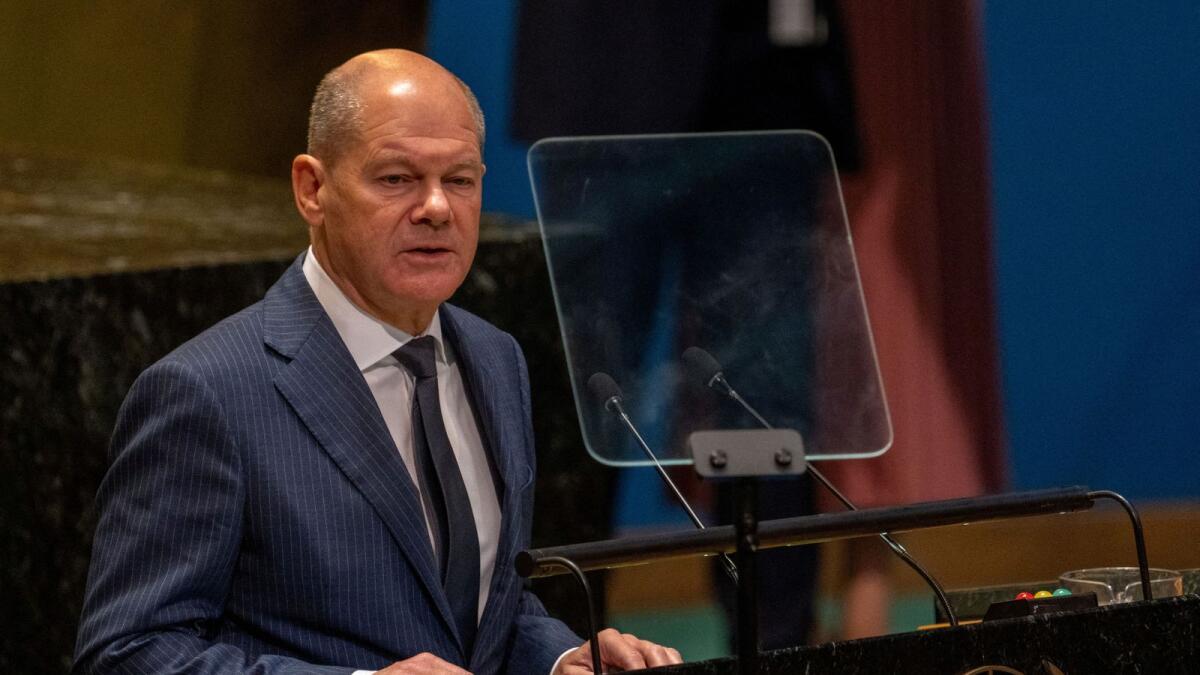German Chancellor Olaf Scholz recently criticized UniCredit’s move to become the largest investor in rival Commerzbank with a potential 21% stake as an “unfriendly attack”, sparking growing tensions towards the Italian bank. This move has drawn ire from the German establishment, particularly towards UniCredit’s use of derivatives to increase its stake before obtaining regulatory approval. The pushback against UniCredit highlights the pressure on European Central Bank supervisors, led by German academic Claudia Buch.
Scholz’s remarks in New York sent Commerzbank shares down by 5.9% as investors reassessed the likelihood of a full takeover. As UniCredit CEO Andrea Orcel aims to build Europe’s largest bank, the situation has become a test of the EU’s determination to transcend national borders for global prominence. However, Christian Democrat opposition leader Friedrich Merz criticized Orcel’s tactics as “amateur” and warned of a potential disaster for Germany’s banking market, citing the precedent set by UniCredit’s acquisition of HVB in 2005.
UniCredit’s bold move has sparked controversies and heightened attention to the European banking landscape. Germany’s finance agency recently announced that it would not sell any more Commerzbank shares, stating that the bank’s strategy is focused on maintaining independence. UniCredit has sought ECB approval to increase its stake in Commerzbank to 29.9%, just below the threshold that would trigger a mandatory takeover under German corporate laws. The ECB now has up to 60 days, extendable to 90, to make a decision on the matter.
Commerzbank responded to UniCredit’s stakebuilding by stating that it would always consider strategic options responsibly in the best interests of its stakeholders. Since UniCredit emerged as the largest private investor after the German state, Commerzbank’s market value has risen to approximately a third of UniCredit’s over 60 billion euros. This unexpected turn of events has raised concerns among stakeholders, with Germany’s Verdi union expressing opposition and vowing to uphold Commerzbank’s independence.
With Commerzbank playing a crucial role in the German economy, its potential merger with UniCredit could have far-reaching implications, including job losses due to Germany’s higher labor costs compared to its Italian counterparts. Despite criticism, UniCredit defended the benefits of a potential combination with Commerzbank, emphasizing the value that could be unlocked for both Germany and the bank’s wider stakeholders. Italy’s Foreign Minister Antonio Tajani also supported UniCredit’s approach, emphasizing the importance of actions backing up pro-European rhetoric.
The escalation of tensions between UniCredit and the German government comes amid political upheaval in Germany, where governing parties are facing challenges from the ultra conservative Alternative for Germany party. This political disarray could hinder the government’s ability to devise a cohesive response to UniCredit’s advances. The situation remains fluid, with experts emphasizing the need for a swift and coordinated approach to address the implications of UniCredit’s stakebuilding in Commerzbank.











